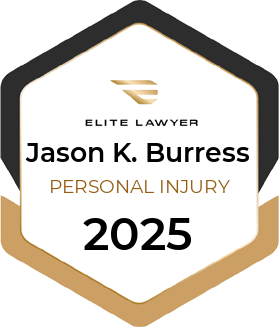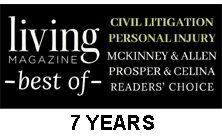FDA Gives Doctors New Diagnostic Tools for Concussions
Traumatic brain injuries (TBIs), or concussions, are among the most catastrophic — and the most common — types of injuries that a motor vehicle crash (or other accident victim) can suffer. TBI victims stand the best chance of having a good recovery from their injuries when they are quickly and accurately diagnosed and undergo treatment for their TBI early on.
However, TBIs can be frustratingly hard to diagnose after an accident because the majority of the damage remains hidden inside the victim's skull. Plus, bleeding and swelling in the brain, or axonal shearing can continue long after the initial impact, eventually causing additional brain trauma that can actually be worse than the initial injury.
Hidden Damage
However, bruising and torn nerve fibers in the brain cannot usually be seen on CT scans or basic MRI's. Although more sophisticated imaging techniques (e.g. Diffusion Tensor Imaging MRI, Susceptibility Weighted Imaging, SPECT, etc.) are much better at detecting microscopic injury to axon nerve fibers which often lead to many of the long-term problems suffered by TBI victims, other diagnostic methods traditionally used to assess brain injuries are essentially subjective tests that measure cognitive abilities. These tests can be particularly impractical when someone is brought into an emergency room after a TBI because they rely on the examiner being able to recognize a victim's baseline abilities prior to the injury — something that an ER physician cannot really do. Frankly, it is also impractical when used on people who are highly motivated to hide their injuries — like athletes and soldiers. They simply learn to spit out the "correct" answers so they can get back out with their team or unit.
In 2018, the U.S. Food and Drug Administration (FDA) approved the first blood test designed to detect mild traumatic brain injuries. Known as the Banyan Brain Trauma Indicator, or Banyan BTI, the test searches for a pair of protein biomarkers that a damaged brain releases into the body's bloodstream within 12 hours of injury. While a step forward, that test works only on adults and it still may delay diagnosis for a critical number of hours during which secondary swelling could continue to harm the victim's brain.
Hope on the Horizon
There's new hope on the horizon, however, that could change the outcome for many victims of concussive injuries. Just in 2019, the United States Food and Drug Administration (FDA) approved the first non-invasive, baseline-free diagnostic method for concussions. Developed by Oculogica, the EyeBOX is a device that can easily be used in any emergency room — and it only takes four minutes to provide an accurate diagnosis.
Essentially, the EyeBOX assesses the brain's ability to control eye movements. Since 2012, doctors have known that TBI victims experience the disruption of the neural pathways that control their eye movements within minutes of a blow to the head — but measuring eye movement manually in a neuro exam is still a subjective test (and useless on patients who cannot follow instructions, for whatever reason).
Accurcy and Accessability
The EyeBOX eliminates those problems. Patients are asked to relax and watch a short film or a music video playing inside a square that moves around a screen. While they do so, the EyeBOX records the victim's eye movements and can then provide objective evidence as to whether there is a concussion. Even better, the simple nature of the test makes it useful for people from ages 5 to 67.
Doctors say that the EyeBOX test can prevent emergency rooms from incorrectly dismissing a patient's injuries as "nothing serious" and unknowingly sending someone home with a serious concussion.
Ultimately, doctors should be using several diagnostic methods whenever they assess someone for a concussion — but these newer, objective testing methods can offer definitive proof that someone has a hidden brain injury and help doctors quickly steer those patients into appropriate treatment.
Traumatic brain injuries have the capacity to change the lives of both victims and their families forever. They can be financially and emotionally devastating. If your loved one has been injured due to a TBI, contact Burress Injury Law at 214-726-0016 for a free consultation to discuss your case.




















 ON
ON
